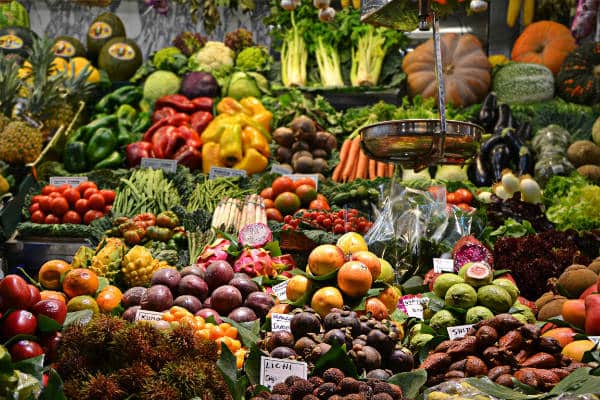
Strawberries are now knocked out of first place. In this year’s list, spinach swapped places with strawberries for the number one spot. The leafy green was found to have “more pesticide residues by weight than any other type of produce,” according to the site.
Here are the other baddies:
New to the list are blackberries, which were tested by the USDA for the first time in 2023. And, potatoes, the most-consumed vegetable in the country, also made it to the Dirty Dozen. 90% of potato samples tested positive for chlorpropham, a chemical that prevents sprout growth—and a chemical that’s banned in the European Union.
After spinach, the following are most problematic. Kale, collard, and mustard greens; grapes; peaches; pears; nectarines; apples; hot and bell peppers; cherries; blueberries; and green beans, respectively, are full of pesticides.
Here are the Clean Fifteen.
Pineapples, fresh and frozen sweet corn, avocados, papaya, onion, frozen sweet peas, asparagus, cabbage, watermelon, cauliflower, bananas, mangoes, mushrooms, and kiwi.
However, “The health benefits of eating fruits and vegetables far outweigh the potential risks of pesticide exposure, whether they’re organic or conventionally grown,” dietician Kiran Campbell states.
However, there is hope. Here is how to wash the pesticides away:
Properly cleaning your fruits ensures even safer consumption. First up, wash your produce thoroughly under running water. “This helps remove dirt, bacteria, and some surface pesticide residues,” explains Campbell. “There’s no need for fancy produce washes or vinegar. Plain water and gentle scrubbing are effective.”
For produce with thicker skins, Campbell recommends enlisting the help of a brush. For more delicate produce like berries, a soak followed by a rinse works well, she says.
After washing, you can peel certain fruits like apples and peaches (most pesticide residue is found on the outside), though you may lose some fiber and nutrients in the skin, Campbell notes. Finally, cooking your produce can reduce some pesticide levels, especially for veggies like spinach or peppers, she says.
“Organic produce is often more expensive than conventional fruits and vegetables, so ultimately, choosing produce you enjoy and can afford, whether organic or conventional, is what matters most,” says Campbell.
I wash and rinse everything, and I remove most of the peel on everything from apples to potatoes and I have been doing that for almost 30 years I became plagued with Chronic Fatigue Syndrome and Fibromyalgia almost 30 years ago , that is why I became almost paranoid about pesticide on food and anything that could make me more… Read more »
I always wash my vegetables in hydrochloric acid before I digest them.